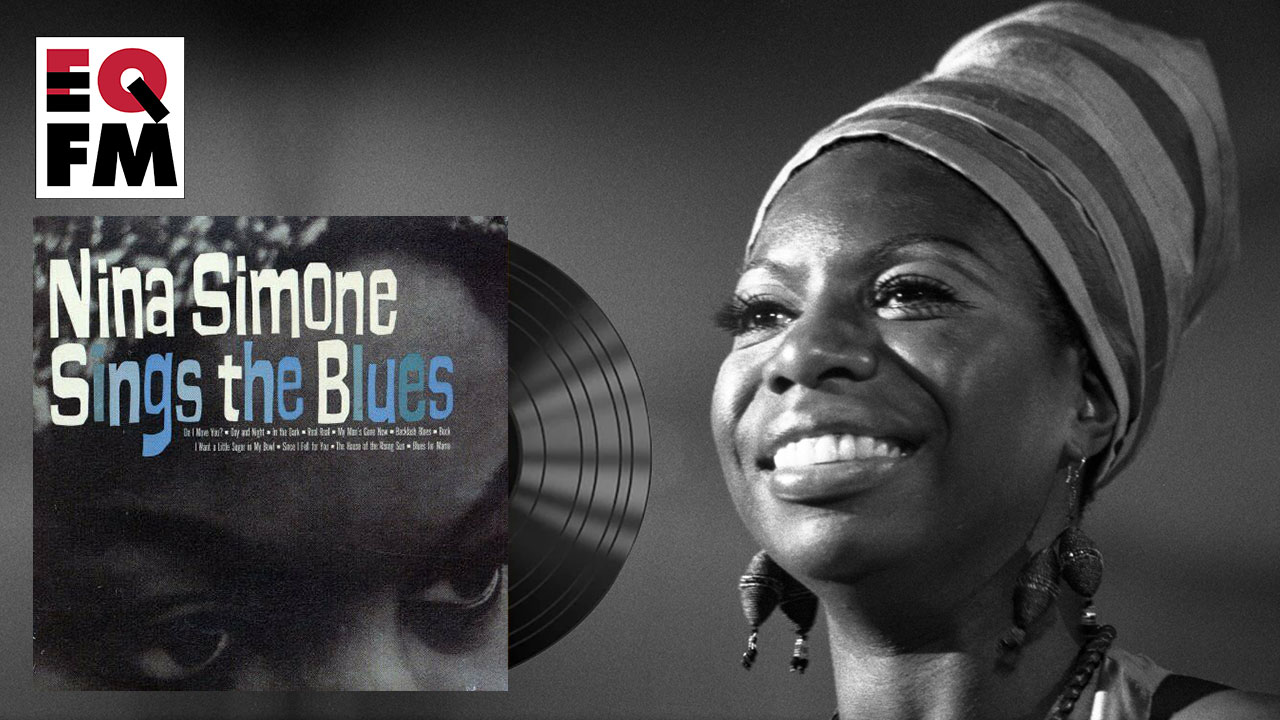Nina Simone: Nina Simone Sings the Blues

Nina Simone (photo by Jean-Pierre Leloir, courtesy of Verve Records, PR)
Album ReCue, a part of FUV's new EQFM initiative, takes an on-air and online look back at influential releases by women that altered not only our perspective of the artist, but her invaluable impact on music history. Listen above for midday host Alisa Ali and morning host Corny O'Connell's assessment of Nina Simone's Nina Simone Sings the Blues and below, an album overview).
Spending time with Nina Simone's deep-as-the-ocean alto—one part tenderness and two parts volatility—is not unlike an intimate conversation with a faraway friend whom you admire for her courage, but sometimes worry about too. One of our FUV Essentials artists, Simone sang to the canyons of her soul with an emotional nakedness that, in the late fifties and sixties, was still startling to hear. One of the great pillars of her discography, 1967's Nina Simone Sings the Blues, arrived at the peak of her civil rights activism but as Simone's marriage to then-manager Andrew Stroud disintegrated; a physically and emotionally abusive relationship (the marriage would finally collapse in 1970) that became a psychological minefield for Simone.
That cycle of tormented passion begins in the first moment of "Do I Move You?," the steamy testament of longing that leads off the album. Her voice leads; drums obediently lag a second behind. She fires off seven questions: an impatient trial attorney for love, cornering a slippery witness:
Do I move you, are you willin'?
Do I groove you, is it thrillin'?
Do I soothe you, tell the truth now
Do I move you, are you loose now?
Love is unreliable in Simone's world, and on Nina Sings the Blues every song is saturated with pain, lust, resignation, and a restless ferocity. It's a lesson in patience too, this revelation of of carnal (and political) blues. Her own "Blues for Mama," co-written with Abbey Lincoln, is all languid swagger and searing hurt, and in retrospect, brutally autobiographical and riveting in its control.
Nina Simone Sings the Blues was Simone's first album for RCA Records, and eventually bookended by the more restrained yet brilliant Silk & Soul, released in October. Following three years after Simone's pivotal release of "Mississippi Goddam" — a volcanic civil rights cornerstone that Simone later believed stymied her career — the centerpiece of this album is "Backlash Blues," lyrics written by Simone's friend, the poet Langston Hughes, who died just months after the album's release. But as scathing as Hughes words were, it was Simone's indignant delivery from her pulpit of fury that said everything about the injustice that black Americans endured.
Simone's ferocious perfectionism, struggles with mental health and finances, the dissolution of her marriage, and repercussions from her civil rights activism derailed her in the seventies. As awful as her marriage to Stroud had been, he'd also shielded her from the business of being Nina Simone. After nearly two decades of darkness, refuge in Europe and a resurrected career eventually steered the "High Priestess of Soul" to some low-key stability and, as more generations discovered her genius, perhaps a modicum of peace before her death in 2003.
In April 2020, an album that Simone recorded in 1982 when she was living in France, called Fodder On My Wings, was rereleased (with three additional tracks) via Verve. The album, which Simone reportedly loved although it languished in obscurity, includes songs sung in French, the exuberant nursery rhyme sincerity of "Color is a Beautiful Thing," as well as a savagely autobiographical take on her father's death, plated atop an old Gilbert O'Sullivan tune ("Alone Again (Naturally)." It brims with Simone's peripatetic inclinations and eccentricities, existing between her bottomless hurt and her sly humor; an alternate take on the blues.
Nina Simone Sings the Blues arrived like storm clouds brewing on Simone's horizon. In hindsight, it says so much about Simone: a consequential woman and human rights revolutionary trapped by a bad romance and her own psychological inferno, and facing profound changes in the civil rights movement that meant everything to her.
Listen
WFUV's EQFM: Nina Simone's Nina Simone Sings the Blues

